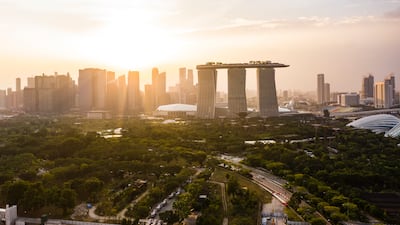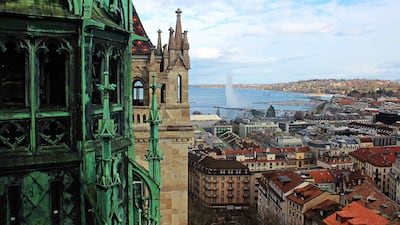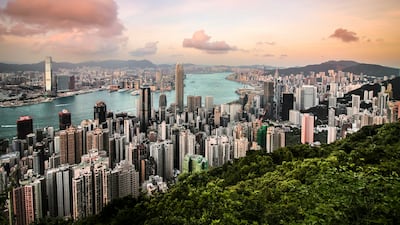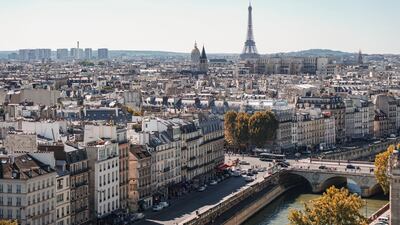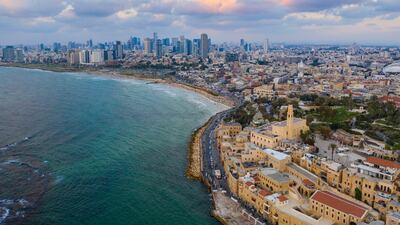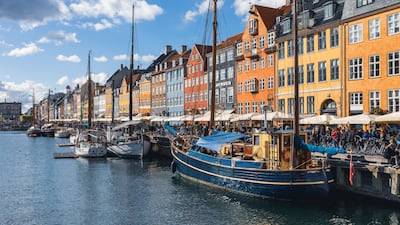Singapore and Zurich have been ranked as the world’s most expensive cities in 2023, driven by a sustained cost-of-living crisis that has resulted in the prices of common goods and services to rise by an annual average of 7.4 per cent, according to a survey by the Economist Intelligence Unit.
An easing of supply chain disruptions has slowed the pace of inflation this year compared with 2022, but it remains high, the EIU said in its Worldwide Cost of Living survey on Thursday.
“The supply-side shocks that drove price increases in 2021-22 have reduced since China lifted its Covid-19 restrictions in late 2022, while the spike in energy prices seen after Russia invaded Ukraine in February 2022 has also eased,” said Upasana Dutt, head of Worldwide Cost of Living at the EIU.
“However, the cost-of-living crisis is hardly over and price levels remain much above historical trends.”
The Covid-19 pandemic era of near-zero interest rates and fiscal and monetary stimulus came to an end in March last year, when record high inflation, a supply chain crunch and the war in Ukraine forced the US Federal Reserve and other central banks around the world to hike interest rates to cool their economies amid a cost-of-living crisis.
In October, the International Monetary Fund said it expected global inflation to decline steadily, from 8.7 per cent in 2022 to 6.9 per cent in 2023 and 5.8 per cent in 2024. This is still well above the preferred 2 per cent target of central banks.
“Inflation is not expected to return to target until 2025 in most cases,” the IMF said.
The EIU conducts its Worldwide Cost of Living survey twice a year and compares more than 400 individual prices across 200 products and services in 173 cities. The rankings compare cities with New York as the base city.
The global average has been calculated by excluding Kyiv, Ukraine, and Caracas, the EIU said. It also noted that the survey was conducted before the start of the Israel-Gaza war in October.
Zurich moved up from sixth place to join Singapore at the top of the rankings due to the strength of the Swiss franc and high prices for groceries, household goods and recreation, the EIU said.
New York dropped back from joint first with Singapore in 2022 to rank third in this year’s most expensive city list, followed by Geneva in fourth place and Hong Kong in fifth.
Rounding out the top 10 are Los Angeles, Paris, Tel Aviv, Copenhagen and San Francisco.
“Globally, utility prices [household energy and water bills] witnessed the slowest inflation of the 10 categories covered in our survey,” the EIU said.
“This was the fastest-rising category in 2022 and the moderation suggests an easing of the energy price shocks caused by Russia’s invasion of Ukraine.
“Grocery, on the other hand, saw the fastest pace of price growth. Food inflation has been sticky across the world as many manufacturers and retailers have passed on higher costs to consumers and the increasing frequency of extreme weather events continues to keep supply-side risks elevated.”
The Mexican cities of Santiago de Queretaro and Aguascalientes were the biggest movers in the rankings, with the peso proving to be one of the strongest emerging market currencies in 2023, the EIU said.
It was also driven by interest rate rises and strong inward investment, the survey found.
On average, Asia continues to see relatively low price increases, the EIU said. Four cities in China – Nanjing, Wuxi, Dalian and Beijing – and Osaka and Tokyo in Japan were among the biggest movers down the ranking this year.
However, the EIU expects that inflation will continue to decelerate in 2024, as the lagged effect of interest rate rises starts affecting economic activity and consumer demand, Ms Dutt said.
“But upside risks remain – further escalations of the Israel-Hamas war would drive up energy prices, while a greater than expected impact from El Nino would push up food prices even further,” she added.
Top 10 most expensive cities in the world in 2023
- Zurich
- Singapore
- New York
- Geneva
- Hong Kong
- Los Angeles
- Paris
- Tel Aviv
- Copenhagen
- San Francisco
Source: Economist Intelligence Unit

